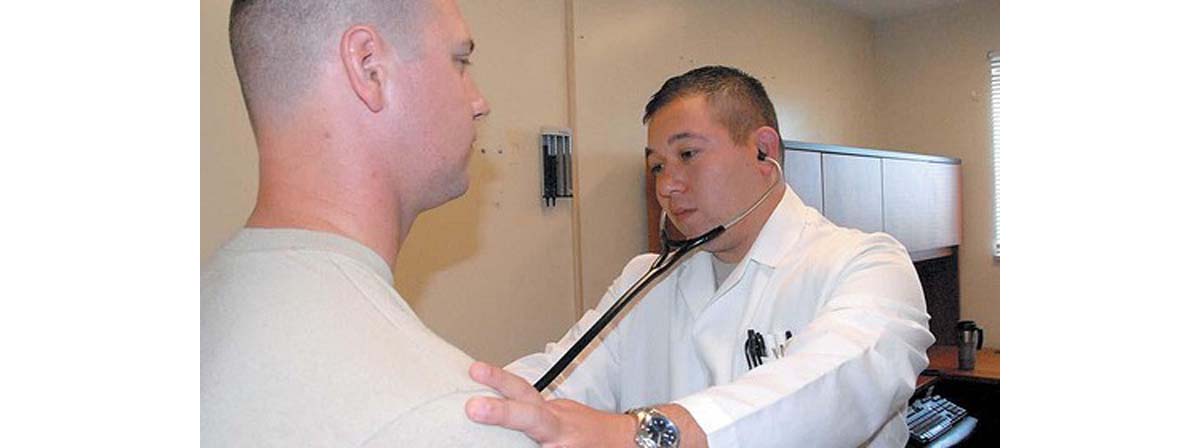Table of Contents
Emergency room doctors are often prepared to do anything for their patients except listen to them — including symptom descriptions and context. In fairness to physicians, working in the emergency room is a notoriously high-stress, fast-paced, physically demanding job. But it is often up to the patient to make sure the doctor gets the facts needed to make the right diagnosis.

Here are eight things you can do if you go through a similar experience and your doctor just isn't listening to you.
1. Know what you are going to say to the doctor before the doctor comes in to see you.
Make a mental list, or even a written list, if you are able, of the symptoms that caused you to call 911 or to drive to the emergency room. Make sure the EMTs in the ambulance and the triage nurse in the emergency room and the doctor who comes in to see all know exactly what is concerning you. They need to your medical history, and your current medical concerns. Some medical experts say that 80 percent of diagnoses can be made on the basis of your medical history, without running any tests at all.
2. Tell your doctor the truth, the whole truth, and nothing but the truth.
It is important for your doctor to hear the whole story when making a your diagnosis. Just as you have a right to be heard by your doctor, your doctor has a right to hear the truth. If you have something relevant to share, do so, no matter how embarrassing you think it may be. And if your doctor is not willing to listen to you, you are entitled to be treated by someone else.
3. Insert yourself into your doctor's thought process.
Find out what your doctor is thinking as you answer your doctor's questions. If you are going to the emergency room to make sure you aren't having a heart attack, and your doctor is thinking you've come in because you are pregnant, especially if you are a guy, this is something you need to know. Let the doctor know what is on your mind. Make sure that your doctor understands what you came in for, and if you can get your doctor to repeat what you said back to you, you are on the right track.
4. Make sure you understand the doctor's process of differential diagnosis.
Differential diagnosis is the process of excluding conditions that present similar symptoms. Don't just ask your doctor "What is it, doc?" but ask, "Did you consider this, did you consider that, what are the conditions you have excluded?" Feel free to ask questions even if you don't know much about medical stuff.
5. Participate in your physical exam.
If you don't know what your doctor is looking for, ask. Don't talk while the doctor is listening to chest sounds or bowel sounds or your heart, of course, but don't just let the doctor go through the entire exam without telling you the reasons for the exam.
6. Share the decision-making process with your doctor.
If there is some condition you are concerned you might have that your doctor has not mentioned, let your doctor. Sometimes simply asking the right question can lead the doctor down the right track, sparing the need for unnecessary tests.
7. Make sure everyone is using common sense.
Don't just assume your doctor is right. Don't let your doctor leave before you understand the diagnosis--or why there isn't a diagnosis.
8. Don't stop with diagnosis.
After you understand the diagnosis, make sure you understand the doctor's plan of action and what you need to do for your part in making it work.
Medical care in the US has become formulaic. Overworked doctors who have to account literally for every minute they spend with their patients often listen for "code words" and count off items on checklists to make their diagnoses. And if you don't want to get your diagnosis through a kind of cookbook medicine, you will probably have to speak up. Medical diagnosis is not a democratic process, but you can stand up for your rights.
If it sounds like being sick in a hospital is actually hard work, that's because it is. But actively participating in your medical care reduces the risk of your case being one of the 100,000 fatal misdiagnoses every year.
- Zuger, A. A Prescription for Frustration. New York Times, 13 April 2013.
- Sibbald M, de Bruin AB, van Merrienboer JJ. Checklists improve experts' diagnostic decisions. Med Educ. 2013 Mar.47(3):301-8. doi: 10.1111/medu.12080.
- Photo courtesy of World Bank Photo Collection by Flickr : www.flickr.com/photos/worldbank/3962720101/
- Photo courtesy of Army Medicine by Flickr : www.flickr.com/photos/armymedicine/5125404825/

